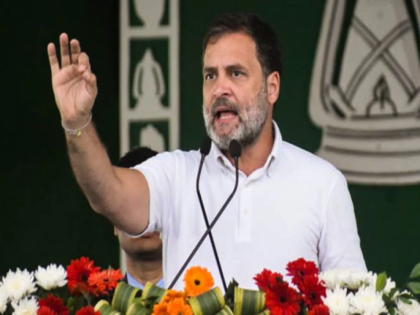"Constitution Is a Modern Document Rooted in Ancient India," Says Rahul Gandhi in Lok Sabha
By Lokmat English Desk | Updated: December 14, 2024 15:51 IST2024-12-14T15:49:26+5:302024-12-14T15:51:00+5:30
Rahul Gandhi, the Leader of Opposition in the Lok Sabha, delivered a significant speech on the 75th anniversary of ...

"Constitution Is a Modern Document Rooted in Ancient India," Says Rahul Gandhi in Lok Sabha
Rahul Gandhi, the Leader of Opposition in the Lok Sabha, delivered a significant speech on the 75th anniversary of the adoption of the Constitution of India, calling it a "document of modern India" while emphasizing the deep influence of ancient Indian ideas on its creation. He highlighted how the Constitution, while a modern document, draws inspiration from the country's ancient philosophies, including the teachings of figures like Shiva, Guru Nanak, Buddha, Kabir, and Mahavir. Gandhi pointed out that the ideas embedded in the Constitution were deeply rooted in India's spiritual and philosophical traditions, which shaped its development.
During the speech, Gandhi also attacked the Rashtriya Swayamsevak Sangh (RSS) and its ideological influence on the ruling Bharatiya Janata Party (BJP). He referenced statements by Vinayak Damodar Savarkar, a prominent RSS leader, who criticized the Constitution, calling it un-Indian and advocating for the Manusmriti as a more suitable guide for India's governance. Gandhi used this to frame the ongoing political struggle between Congress and the RSS, accusing the BJP MPs of defaming Savarkar when they defend the Constitution.
Further, Gandhi brought attention to a personal visit to Hathras on December 12, where he met the family of the 2020 Hathras crime victim. He expressed concern over the continued fear faced by the family, alleging that those responsible for the crime were still free while the victim's family remained in distress. Gandhi also mentioned that Manusmriti, which he linked to the oppression of women, promoted values not aligned with the Constitution's principles of justice and equality.
The debate on the Constitution in the Lok Sabha, marking its 75th anniversary, is part of a broader political conversation about its future and the influence of traditional ideologies in India's governance.
Open in app